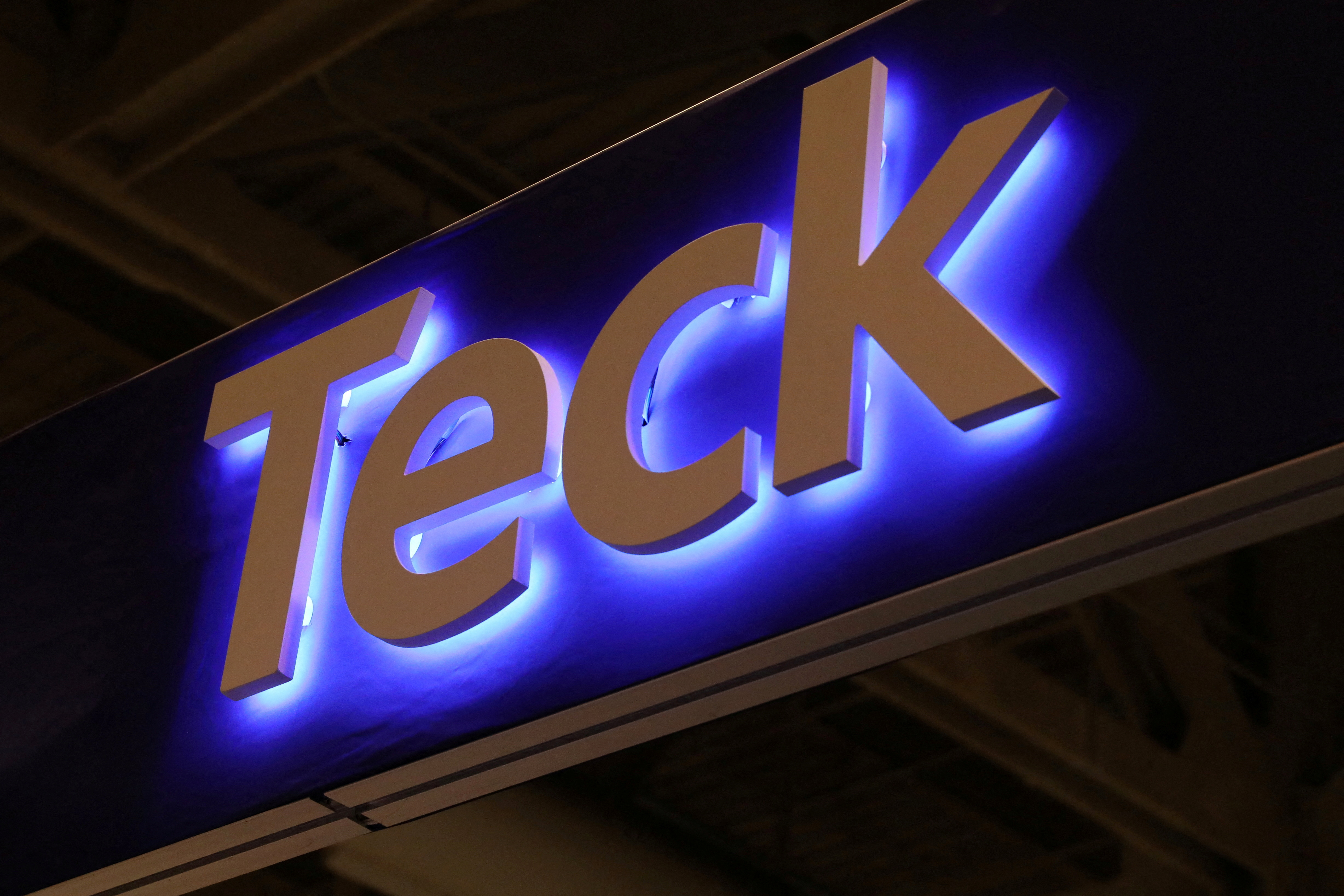[ad_1]

The logo for Canadian mining company Teck Resources Limited is displayed above their booth at the Prospectors and Developers Association of Canada (PDAC) annual conference in Toronto, Ontario, Canada March 7, 2023. REUTERS/Chris Helgren/File Photo Acquire Licensing Rights
TORONTO, Nov 14 (Reuters) – As Glencore prepares for the long grind to convince Canada of the virtues of the Swiss trader-led consortium’s $9 billion bid for Teck Resources’ coal unit, investors and lawyers are optimistic about the deal approval despite the government’s increased scrutiny of foreign investments.
In recent years, Canada has tightened the Investment Canada Act (ICA), the main tool the government uses to review inbound deals to ensure transactions are not harmful to national security.
Glencore (GLEN.L) CEO Gary Nagle’s initial bid for the entire Teck Resources (TECKb.TO) faced stiff opposition from Justin Trudeau’s Liberal government and from the premier of British Columbia, where the company is based. Teck twice rebuffed Glencore’s overtures.
On Tuesday, the federal innovation ministry declined to specifically comment on Glencore’s bid, citing confidentiality provisions of the Act, but said any transaction involving a Canadian company and a foreign company would be subject to a review under the ICA.
“All regulatory processes will be followed regarding review of the proposal,” Finance Minister Chrystia Freeland said during a conference. “The government concern remains to protect Canadian jobs, environmental issues, rights of indigenous people; Teck is important for Canada and they are a champion for Canada.”
Greg McNab, a partner with law firm Dentons who specializes in the energy and mining sector, said he expects the deal to be approved by the government.
“The Canadian government makes a lot of tax revenues from coal, but it does not want to be seen as blocking the sale of those assets to someone else, at least from the public policy perspective,” McNab added.
After seven months of pitched battles, Glencore on Tuesday was finally able to persuade Teck to sell a 77% stake in the Canadian miner’s steelmaking coal business for $6.9 billion in cash, with 20% going to Japan’s Nippon Steel Corporation (5401.T).
Anticipating an intense and a long review, Glencore has made a 28-point commitment to ICA, including a pledge to keep the company headquartered in Vancouver with a majority of the board of directors and senior leadership made up of Canadian nationals. Glencore expects the transaction to close in the third quarter of 2024.
United Steelworkers union (USW), representing over 4,000 Teck employees in British Columbia, said it would not support the proposed sale of Teck’s steelmaking coal operations to Glencore without further commitments.
“While we see a number of good and broad commitments such as job retention, a Vancouver-based head office… underlying concerns persist regarding Glencore’s role as a corporate entity,” USW Western Canada Director Scott Lunny said, adding that there has been no communication from the company.
In the past five fiscal years starting in 2018/19, nearly 100 inbound deals were subject to Canada’s extended national security review, of which 10 were forced to divest stakes, one was blocked and two reviews are ongoing.
While the number of companies undergoing extended reviews has increased, outright rejections have been rare.
Glencore said it would demerge the coal units of both companies within 24 months of the deal’s close.
The deal announced on Tuesday isn’t subject to approval by Teck shareholders, who in April scuppered a planned split of the company.
While all investments are subject to national security review, only significant acquisitions of control of Canadian businesses by foreign investors are reviewed for net benefit.
“I will be surprised that the deal will be scuttled because the way the deal is structured with multiple parties,” said Peter Letko, co-founder of Letko Brosseau, a Montreal-based asset management firm and a Teck investor.
“I think this is a fair deal, they have accomplished what they (Teck) wanted to do, remove the higher emission product from their portfolio. This was the strategy of the Keevil family too,” Letko added, referring to Teck’s Keevil family which owns 55% of Teck’s Class A shares though Temagami Mining.
Reporting by Divya Rajagopal;Additional reporting by Akanksha Khushi; Writing by Denny Thomas; Editing by Jonathan Oatis and Miral Fahmy
Our Standards: The Thomson Reuters Trust Principles.
[ad_2]
Source link
